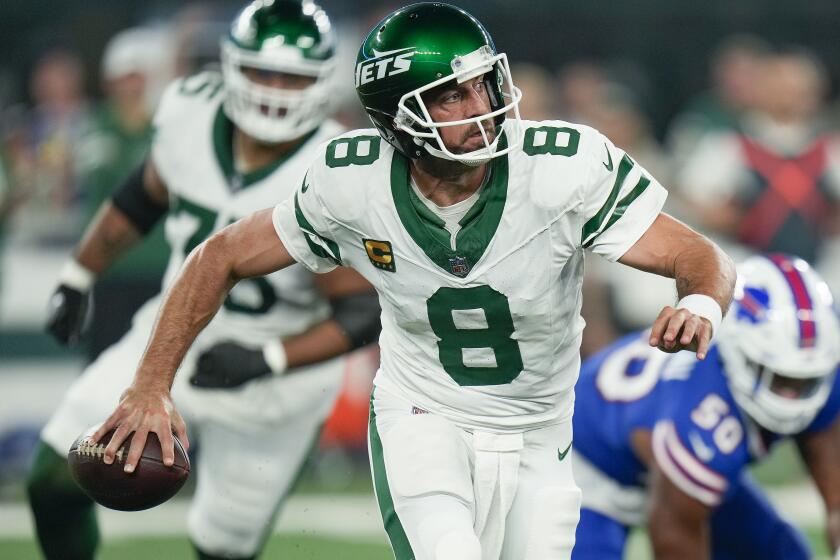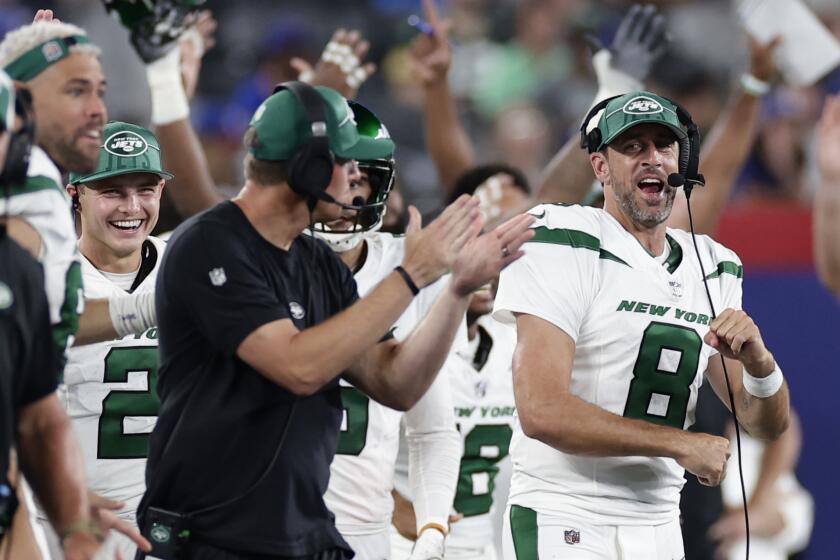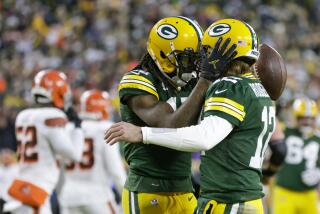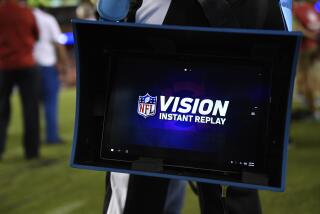Aaron Rodgers suffered season-ending injury on turf. Now NFLPA is calling for grass fields
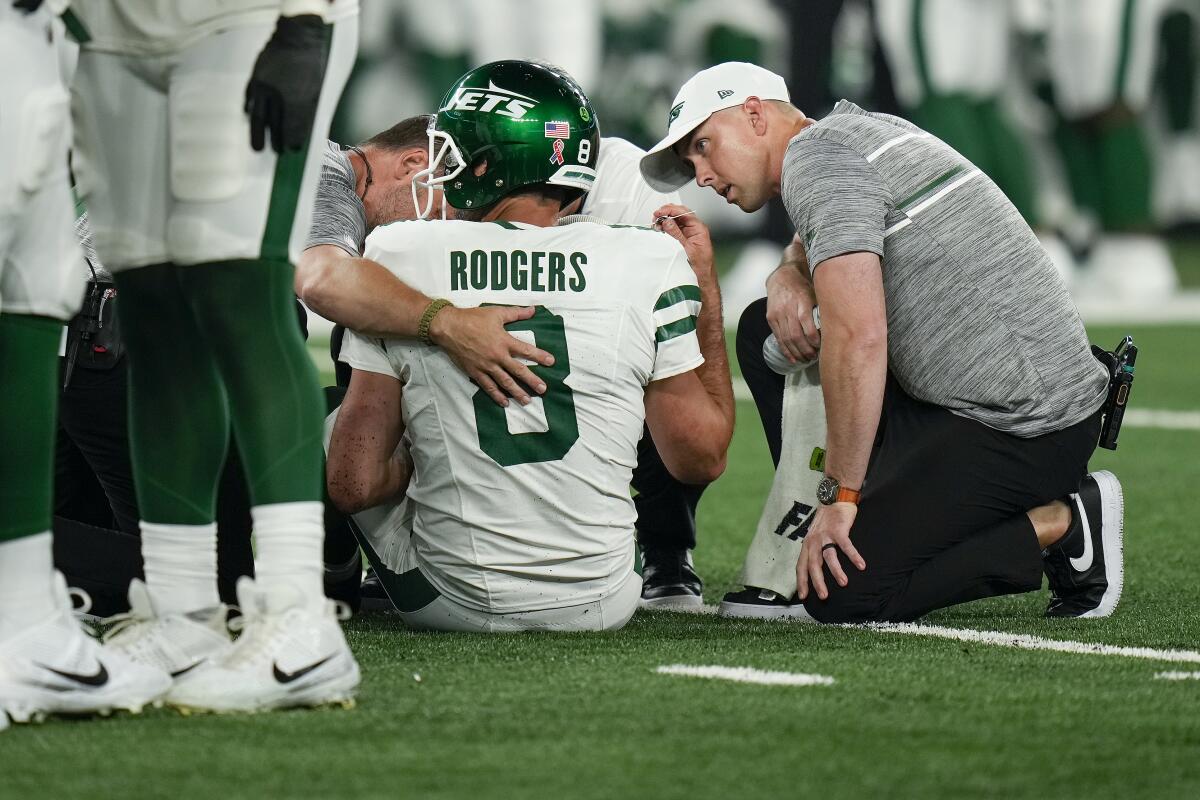
- Share via
Two days after New York Jets quarterback Aaron Rodgers suffered a season-ending Achilles tendon injury on artificial turf, the NFL Players Assn. called for the league to switch to all-grass playing surfaces.
It is not clear what role, if any, the playing surface had in Rodgers’ injury Monday at MetLife Stadium, but the cries to replace all synthetic playing surfaces with natural grass have suddenly gotten much louder since the mishap that occurred four snaps into Rodgers’ tenure with the Jets.
NFLPA executive director Lloyd Howell made such a demand Wednesday morning in a statement that didn’t specifically mention the 39-year-old Rodgers or his injury.
Aaron Rodgers tore his Achilles tendon during his Jets debut before the team rallied to a 22-16 win in overtime against the Buffalo Bills.
“Moving all stadium fields to high-quality natural grass surfaces is the easiest decision the NFL can make,” Howell said. “The players overwhelmingly prefer it and the data is clear that grass is simply safer than artificial turf. It is an issue that has been near the top of the players’ list during my team visits and one I have raised with the NFL.
“While we know there is an investment to making this change, there is a bigger cost to everyone in our business if we keep losing our best players to unnecessary injuries. It makes no sense that stadiums can flip over to superior grass surfaces when the World Cup comes, or soccer clubs come to visit for exhibition games in the summer, but inferior artificial surfaces are acceptable for our own players. This is worth the investment and it simply needs to change now.”
The NFL has not issued a response to the NFLPA’s statement regarding the playing surfaces.
Last season, the NFLPA called for teams that used a specific type of synthetic surface, known as slit film, to replace it because of “statistically higher in-game injury rates compared to all other surfaces.”
MetLife Stadium, which serves as the home field for both the Jets and the New York Giants, switched from the slit film surface to one called FieldTurf during the offseason. The new, more-forgiving synthetic surface received generally positive reviews from Jets players, including Rodgers, during the preseason.
“I’m a fan of grass, for sure. Got to admit that. I like wearing seven studs and playing on grass, but I feel like the field — it’s supposedly the newest and the greatest,” he said. “There’s obviously been a lot of conversation around grass field compared to turf field, but I feel like the other night, it’s been one of the best surfaces I’ve seen that’s artificial.”
The blackout ended Monday with a new distribution deal, hours before the New York Jets-Buffalo Bills ‘Monday Night Football’ game on ESPN.
Rodgers, a four-time league MVP, was acquired from the Green Bay Packers during the offseason and anticipation was high for his regular-season Jets debut. ESPN reports the season opener between the Jets and Buffalo Bills drew 22.64 million viewers, making it the most-watched “Monday Night Football” broadcast since the network started showing the weekly games in 2006.
Those viewers saw a shocking development less than three minutes into the game, as Rodgers’ left Achilles appeared to visibly pop while the quarterback was sacked by Buffalo’s Leonard Floyd. Former Jets starter Zach Wilson took over for Rodgers and the Jets defense sparked the team to a 22-16 overtime win.
More to Read
Go beyond the scoreboard
Get the latest on L.A.'s teams in the daily Sports Report newsletter.
You may occasionally receive promotional content from the Los Angeles Times.
